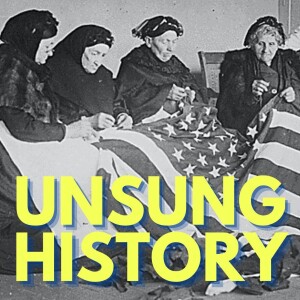
Popular depictions of prohibition in the United States usually show the speakeasies, bootleggers, flappers, and bathtub gin of the Roaring Twenties, but earlier attempts at prohibition stretch back far into the 19th century.
In 1851, Maine passed the first statewide prohibition law, and 12 other states quickly followed as temperance societies preached the evils of alcohol. Anti-prohibitionists, especially liquor dealers and hotel owners, decried the “tyranny of the majority” and fought back with their own PR campaigns and legal challenges.
Many of the methods that the anti-prohibitionists used and that were used by other moral minorities of the day (such as those fighting against Sunday Laws and those working toward racial equality) were precursors to the methods used in the Civil Rights Movement in the 20th century.
In this episode, Kelly briefly tells the story of the 1850s Maine Laws and interviews Kyle Volk, Associate Professor and Chair of the Department of HIstory at the University of Montana, and author of Moral Minorities and the Making of American Democracy, which discusses these early attempts at prohibition.
Our theme song is Frogs Legs Rag, composed by James Scott and performed by Kevin MacLeod, licensed under Creative Commons. Episode image: “The drunkard's children. A sequel to The bottle” by George Cruikshank, 1848, Wellcome Collection.
Sources:
- Moral Minorities and the Making of American Democracy by Kyle Volk, 2017
- “When Maine went dry,” by Kelly Bouchard, Portland Press Herald, October 2, 2011
- The Maine Liquor Law: Its Origin, History, and Results, Including a Life of Hon. Neal Dow by Henry Stephen Clubb, 1856.
- “Throwback Thursday: Maine Becomes the First State to Outlaw Alcohol,” by Madline Bilis, Boston Magazine, June 2, 2016
- “What if the Fourth of July were dry?” by Kyle Volk, Oxford University Press Blog, July 4, 2014
- An inquiry into the effects of ardent spirits upon the human body and mind: with an account of the means of preventing, and of the remedies for curing them by Benjamin Rush, 1784.
Advertising Inquiries: https://redcircle.com/brands
More Episodes
 2024-10-21
2024-10-21
 2024-10-14
2024-10-14
 2024-09-23
2024-09-23
 2024-09-09
2024-09-09
 2024-09-02
2024-09-02
 2024-08-26
2024-08-26
 2024-08-19
2024-08-19
 2024-08-05
2024-08-05
 2024-07-29
2024-07-29
 2024-07-22
2024-07-22
 2024-06-17
2024-06-17
Create your
podcast in
minutes
- Full-featured podcast site
- Unlimited storage and bandwidth
- Comprehensive podcast stats
- Distribute to Apple Podcasts, Spotify, and more
- Make money with your podcast
It is Free
- Privacy Policy
- Cookie Policy
- Terms of Use
- Consent Preferences
- Copyright © 2015-2024 Podbean.com






